-
Tax Is Not a Dirty Word. It Is a Measure of Political Honesty.
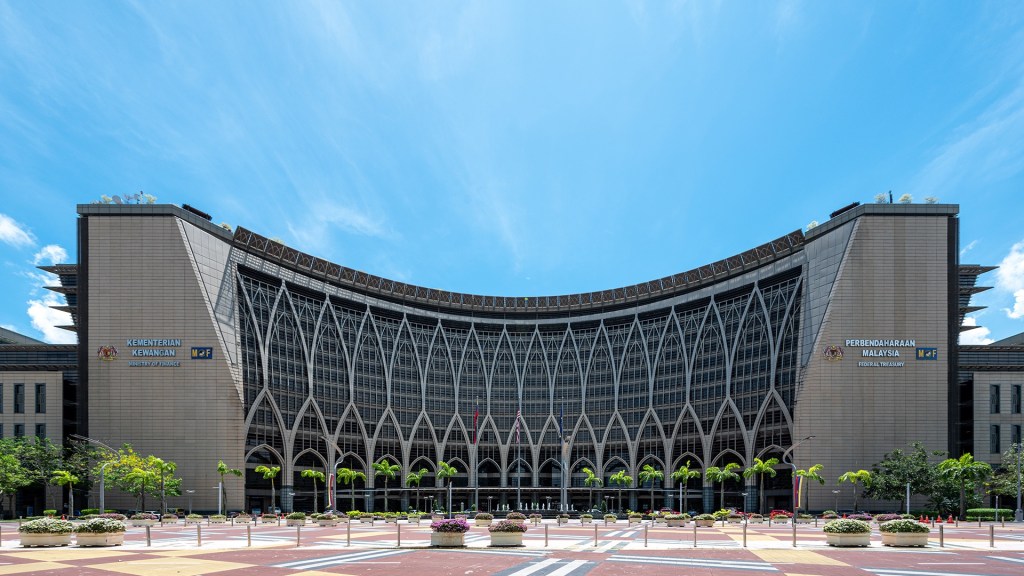
A Reflection on IDEAS and the Politics of Revenue
The recent IDEAS paper confronts a truth Malaysia has postponed for too long.
Our fiscal system is too shallow for our ambitions.
Our redistribution is too weak for our inequality.
Our federation is too centralised for its constitutional design.
Federal government revenue remains below 17 percent of GDP. Putrajaya controls over 90 percent of overall revenue and expenditure, an unusually high degree of fiscal centralisation for a federation. Pre- and post-tax income inequality barely shifts. Development expenditure tightens as operating obligations expand. We compensate with Petronas dividends and episodic adjustments, then call it reform.
It is not structural reform. It is managerial adjustment.
The more interesting question is political.
Why has Malaysia struggled to undertake serious tax redesign?
Because taxation is never merely economic. It is political.
DAP draws heavily from urban constituencies where capital accumulation and asset appreciation are concentrated. UMNO’s political architecture was forged around central authority and developmental discretion. PKR, governing from Putrajaya, inherits both the gravitational pull of executive authority and the quiet temptations that accompany control, alongside the caution of incumbency.
None of these incentives naturally favour a deeper, broader and more progressive tax architecture that simultaneously narrows the centre’s discretion.
That is political economy.
Much of the current reform narrative is framed around lifting the ceiling — attracting capital, activating GLICs and re-engineering higher-value sectors. These are necessary components of modern growth. But sustainable expansion cannot rely solely on capital formation, with improved livelihoods treated as downstream effects. A more durable synthesis recognises that widening purchasing power, strengthening rural infrastructure and recalibrating fiscal federalism are not merely redistributive acts. They are growth multipliers in their own right. Fiscal federalism, once seen as premature or politically sensitive, is increasingly an idea whose time has come.
In that rebalanced understanding of growth, PAS stands on different terrain.
A party rooted in rural and semi-urban Malaysia, governing states that experience fiscal centralisation as constraint rather than advantage, and not structurally dependent on urban asset concentration, has room to speak about taxation differently.
PAS has not historically sat at the core of Malaysia’s fiscal settlement. Consequently, it has not had to internalise the calculated instincts that accompany control of the revenue levers. Its electorate, long positioned at the periphery of federal allocation, has participated in the national tax bargain largely as recipient rather than architect. That equilibrium would necessarily shift if ever PAS were to command Putrajaya.
Revenue sharing is not fragmentation. It is federal correction.
Rural infrastructure is not subsidy. It is equalisation.
A broad-based consumption tax is not regressive if paired with automatic income support.
Capital gains and inheritance taxation are not punitive if calibrated and transparently reinvested in productivity and equalisation.
The current system taxes labour more consistently than it taxes accumulated capital. It centralises revenue while local needs compound. Petronas absorbs the shock, but it cannot substitute indefinitely for a broader base.
This is not sustainable.
If GST returns, it must return contractually, with rules-based compensation and visible enforcement.
If capital gains are aligned more closely with income tax treatment, it must be done predictably, protecting small investors while addressing structural bias.
If inheritance taxation is considered, it must focus on significant estates, not modest family assets.
And if revenue rises, statutory formula-based transfers to states must follow. Otherwise reform will merely strengthen the centre.
Tax is not the enemy of growth.
It is one of its instruments.
Poorly designed tax distorts incentives.
Chronic under-taxation constrains possibility.
If widening purchasing power, rural infrastructure and fiscal federalism are indeed growth multipliers, then revenue architecture cannot remain an afterthought. It must sit at the centre of the model itself.
Malaysia’s challenge is not whether it can design a fairer and more growth-consistent system. It can.
The question is whether any political formation is prepared to align tax design, federal balance and growth strategy within a single governing framework.
The space for such reform exists.
Whether it is pursued will determine how the gains of growth are distributed across the federation.
*This reflection responds to the IDEAS article published in The Edge Malaysia Weekly (February 16–22, 2026), available here: https://theedgemalaysia.com/node/793111
-
Distance, Power, and the Unfinished Constitution
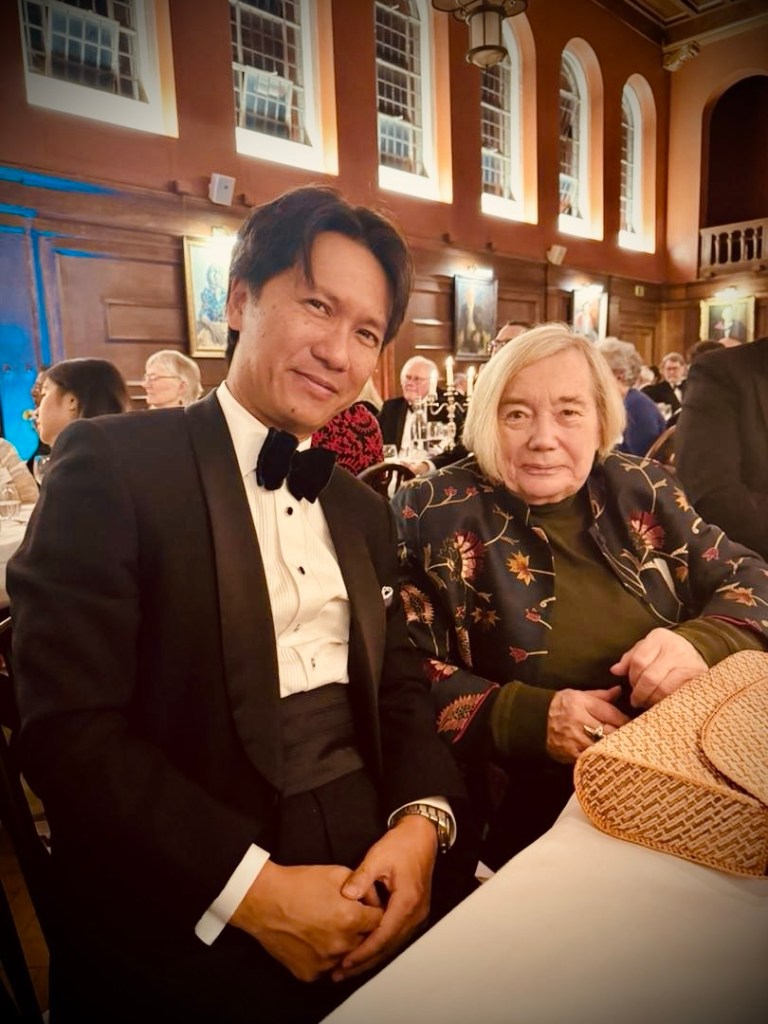
With my former Politics tutor Gillian Peele Emeritus Oxford Professor of Politics (retired 2016) and since 2021 independent member of the U.K. Committee on the Standards in Public Life. The evening began in stillness rather than ceremony.
At Lady Margaret Hall, beneath the familiar light of a college that has long outlived the generations it formed, conversation returned not to memory, but to questions that never quite leave those who take public life seriously. Questions about power, restraint, and the fragile distance that must exist between authority and the law that judges it.
It was a quiet reminder that constitutional ideas are rarely born in grand chambers. They begin in smaller rooms, carried forward through teaching, reflection, and the slow discipline of institutions learning to correct themselves. The United Kingdom, from which Malaysia inherited its constitutional grammar, has never treated the balance between executive power and the rule of law as permanently settled. Again and again, Westminster has been forced to redraw that boundary.
Prosecutorial authority was progressively insulated from policing and political direction. Judicial independence was clarified and strengthened through structural reform. Parliamentary committees evolved from courtesy into scrutiny. And, in more recent decades, the United Kingdom acknowledged an even deeper truth: legality alone could not sustain legitimacy. Ethics, transparency, and visible restraint had become constitutional necessities rather than moral luxuries.
These were not reforms born of weakness. They were acts of preservation. For even the oldest parliamentary democracy discovered that public trust erodes when power appears too close to its own enforcement, and that distance, once lost, must be deliberately rebuilt.
That lesson travels easily across systems shaped by the same inheritance.
For Malaysia now confronts a question Westminster has spent decades attempting to answer: how close may executive authority stand to the machinery of investigation and prosecution before confidence in neutrality begins to fail.
Let us be direct. When the offices of Prime Minister and Finance Minister are held by the same person, when the Attorney General, who is also Public Prosecutor, ultimately answers to that same office, and the Home Minister does not exercise meaningful independent weight, the decisive instruments of the state, money, police authority, anti corruption enforcement, and prosecutorial discretion, gather within a single political centre.
The law may continue to describe separation. The Constitution may still suggest balance. Yet in lived reality, institutional distance recedes. And once distance recedes, neutrality is no longer something the system can demonstrate. It becomes something merely asserted.
From that point onward, the question is no longer any individual investigation. It is the structure of power itself. Every charge is vulnerable to being read as selective. Every silence may be interpreted as protective. Every outcome risks appearing political, because the system offers no convincing barrier between authority and enforcement.
Malaysia did not arrive here suddenly. This architecture was formed in an earlier era of concentrated executive rule, and once functioned as an instrument of persecution. Today, preserved rather than dismantled, it serves as an instrument of protection. The one who was once its most visible victim now stands upon the same constitutional ground as its beneficiary.
Until that structure is fundamentally reordered, truly broken rather than rhetorically reformed, confidence in the rule of law will remain conditional. Justice will continue to be measured not only by evidence, but by the shadow of power that falls across it.
To understand how this condition emerged, one must look beyond personalities and into design. Malaysia’s constitutional framework was never intended to operate as a system of pure separation. It was conceived within a Westminster inheritance that assumed restraint, convention, and political culture would supply the distance that formal text did not fully prescribe. For a time, those assumptions appeared workable. Institutions functioned with a degree of mutual respect, and the boundaries between authority and enforcement, though not absolute, were broadly understood.
But constitutional systems do not rely on goodwill alone. When political incentives shift toward consolidation, structures that depend on restraint rather than insulation begin to bend. Over successive decades, executive influence extended gradually across the machinery of investigation, prosecution, and enforcement. Each individual step could be defended in isolation. Each appeared lawful. Each seemed temporary. Yet taken together, they produced something more enduring: convergence.
Convergence does not announce itself dramatically. It settles quietly. Authority accumulates through appointment powers, reporting lines, discretionary controls, and fiscal leverage. What was once plural becomes coordinated. What was once distant becomes proximate. And what was once independent becomes, over time, interpretively aligned with the centre of power.
The consequences of such convergence are rarely immediate. Courts continue to sit. Laws continue to operate. Investigations continue to occur. From the outside, constitutional life appears intact. The deeper change is perceptual rather than procedural. Citizens begin to ask not whether justice is possible, but whether it is equally possible for all. Once that question takes root, legitimacy begins to thin.
Legitimacy, in any rule of law system, is not sustained by outcomes alone. It depends on visible distance between the wielder of power and the enforcer of law. Where that distance is credible, even controversial decisions can be accepted. Where it is absent, even correct decisions invite suspicion. The public does not merely judge what institutions do. It judges where they stand.
Comparative experience makes this plain. Mature governance systems, whether in Europe or parts of Asia, have moved steadily toward structural insulation of prosecutorial and investigative authority. The objective is not to weaken the state, but to protect it from the corrosive doubt that proximity to politics creates. Independence in these systems is engineered through tenure security, parliamentary accountability, transparent appointment processes, and clear separation between investigator, prosecutor, and executive adviser. None of these mechanisms guarantees perfection. But together they create distance. And distance, more than rhetoric, sustains trust.
Malaysia’s dilemma is therefore not unique, but it is acute. The country stands at a constitutional midpoint between inherited Westminster flexibility and modern expectations of institutional insulation. The older model relied on character. The newer model relies on structure. Where character falters, only structure can compensate. Where structure is absent, no assurance is sufficient.
This explains why cycles of controversy recur regardless of which coalition governs. Each administration inherits the same architecture. Each discovers its utility. Each promises reform while in opposition and postpones it in power. The pattern is not ideological. It is structural. Systems built for concentration naturally resist dispersion.
Yet constitutional history also teaches that concentration is rarely permanent. Moments of institutional doubt often precede renewal. Public unease, when sustained, forces reconsideration of design. The question is not whether reform is imaginable, but whether it is undertaken deliberately or deferred until crisis compels it.
Real reform, if it is to restore confidence rather than merely rearrange perception, must begin with distance. Investigative bodies must stand visibly apart from executive direction. Prosecutorial discretion must be exercised through offices whose legitimacy does not depend on political proximity. Oversight must be anchored in Parliament rather than courtesy. Tenure must protect function rather than favour. None of these changes is revolutionary. All are consistent with constitutional democracy. But each requires the relinquishing of convenience by those who temporarily hold power.
That relinquishing is the hardest act in politics. Authority rarely surrenders itself voluntarily. Yet history shows that systems which refuse measured reform often invite more disruptive correction later. Stability purchased through concentration is seldom stable for long. True durability comes from balance that citizens can see and believe.
Malaysia now faces precisely this choice. It may continue to rely on assurances that institutions remain neutral despite structural proximity to power. Or it may undertake the quieter, more demanding work of redesigning distance into the constitutional order itself. The former preserves comfort. The latter restores confidence. Only one endures.
The stakes are therefore larger than any individual case, any investigation, or any administration. They concern the moral credibility of the state. A nation’s laws command obedience not only because they are enforced, but because they are trusted. When trust weakens, enforcement alone cannot compensate. Power may compel compliance. It cannot compel belief.
And belief is what ultimately sustains the rule of law.
Malaysia’s constitutional journey has always been unfinished. Each generation inherits both the achievements and the compromises of the one before. The present moment is simply another turning. Whether it becomes a period remembered for consolidation or for renewal depends on a single question: will power choose distance from itself?
If it does, confidence can return gradually, quietly, and lastingly. If it does not, doubt will persist, not loudly, but permanently, shaping how every future act of justice is seen.
For in the end, the rule of law is not secured by declarations, nor preserved by personalities. It survives only where institutions stand far enough from power to judge it without fear, favour, or shadow.
-
Kuala Lumpur, Legitimacy, and the Unfinished Settlement
Do we trust cities to produce future national leaders, or do we fear them as rival centres of legitimacy?
Jakarta and Seoul answered yes.
Western capitals answered maybe.
Singapore and Malaysia have answered no.
The distinction matters because Kuala Lumpur is not merely another municipality whose governance can be arranged through administrative convenience. It is the administrative, financial, and symbolic core of the federation, and decisions about how it is governed have therefore always been decisions about how political legitimacy itself is permitted to form within Malaysia.
Since its separation from Selangor and designation as a Federal Territory in 1974, Kuala Lumpur has been governed not through electoral mandate but through appointment, fragmentation, and federal supervision, producing a structure that is administratively capable yet politically restrained, effective in delivery yet carefully insulated from the emergence of an autonomous metropolitan authority. The city functions, but it does not speak in its own name. This was never an historical accident. It was a deliberate settlement shaped by the anxieties of an earlier era.
Local government elections had once existed, and their suspension in the 1960s occurred in a context where urban electoral behaviour was already aligning strongly along communal lines, with Chinese voters returning Chinese councillors and deepening an emerging fear among the Malay majority that the federal capital might evolve into a city politically controlled by a minority community. Whether that fear was proportionate is, in some sense, beside the point. What mattered was that it was politically decisive, and the institutional response was correspondingly clear. Electoral urban authority was withdrawn, and the possibility of an independently legitimised metropolitan centre was contained before it could fully mature. Every subsequent feature of Kuala Lumpur’s governance architecture must therefore be read against that founding anxiety.
It is within this historical frame that renewed discussion of a directly elected Mayor of Kuala Lumpur must now be understood, not as an isolated reform proposal but as a quiet test of whether Malaysia is prepared, after half a century of containment, to revisit the original settlement that placed the capital firmly under federal political control. Formally, the language is one of accountability, responsiveness, and democratic renewal. Substantively, the question is far more delicate, because a directly elected mayor would introduce into the federal capital a city wide personal mandate capable of accumulating moral authority independent of federal delegation.
Across different political systems, the experience of metropolitan leadership has repeatedly shown that authority rooted in the city rarely remains confined to the city. The tenures of Joko Widodo and Anies Baswedan in Jakarta, of Boris Johnson and Sadiq Khan in London, and of figures such as Zohran Mamdani in New York and Anne Hidalgo in Paris reveal a quieter pattern: once legitimacy is conferred through direct urban mandate, it begins to travel outward, shaping national narratives, reframing political imagination, and, in time, testing the boundaries of established power. Statutory powers may be narrowly drawn, fiscal discretion tightly bounded, and jurisdiction carefully circumscribed, yet the symbolic effect remains profound. In moments of visible failure such as floods, planning disputes, transport breakdowns, or cost of living pressures, the public comparison between appointed authority and elected responsibility becomes unavoidable. Federal power may remain constitutionally intact, but it no longer stands alone as the unquestioned reference point of legitimacy within the nation’s most important city.
This explains why unease around such proposals emerges instinctively and often before the policy details are fully articulated. Federal incumbents are wary of parallel legitimacy forming within the federal capital. Coalition managers, whose craft depends on calibrated diffusion of authority across parties and regions, are structurally uncomfortable with concentrated metropolitan mandates. Long standing traditions of ethnopolitical mediation sit uneasily with urban electorates that increasingly reward administrative performance over communal brokerage. None of this requires ideological hostility. It follows naturally from the way the system has been constructed and sustained.
If an elected mayoralty were nevertheless introduced, the primary structural political beneficiary would almost certainly be the Democratic Action Party, not as a matter of ideology or intent, but because institutional design would at last align with the sociological terrain on which the party has long stood. For decades, the party’s legitimacy has been rooted in dense urban constituencies that are professional, multi ethnic, and increasingly oriented toward governance and delivery rather than patronage, yet the architecture of Malaysian power has consistently prevented that legitimacy from consolidating into an executive metropolitan mandate. Parliamentary victories fragment authority. Participation in federal government diffuses accountability. A directly elected urban executive would do neither. It would concentrate responsibility, visibility, and performance in a single office whose authority derives from the city rather than from coalition arithmetic.
In demographic terms, Kuala Lumpur is a city defined by near parity between its two largest communities, with Chinese and Malay electorates each comprising more than two fifths of the population. Under conditions of direct mayoral election, the decisive electoral centre would therefore lie not in communal majoritarianism but in the urban coalition that has historically coalesced around the Democratic Action Party. The practical consequence is difficult to avoid stating plainly. Any Malay leader seeking to become Mayor of Kuala Lumpur, and through that office acquire a nationally resonant urban mandate, would almost certainly do so with the electoral consent, and therefore the political mediation, of a predominantly Chinese anchored coalition led by the Democratic Action Party.
This does not imply permanence, nor does it predetermine political outcomes across time. It does, however, describe with some clarity the structural reality that would confront the federation: the emergence of metropolitan executive authority whose legitimacy is inseparable from cross communal alignment, yet whose perception in the national imagination may still be filtered through the older grammar of communal balance. It is within that tension, rather than within any single election result, that the deeper political consequences would reside.
What would be tested, in the end, is not the mechanics of municipal democracy, but the federation’s capacity to accept a centre of urban legitimacy shaped by electoral realities it has long sought to contain.
That question cannot be resolved through institutional design alone, because it reaches into the unfinished political settlement at the heart of the federation.
Malaysia may yet choose to defer the issue, as it has deferred it before.
But questions of legitimacy, once postponed, do not disappear.
They accumulate in silence, and when they finally return, they rarely do so gently.
-
Justice Without Finality
Malaysia has crossed a line that many countries speak of, but few ever do. A former Prime Minister has been investigated, charged, tried, convicted, sentenced, imprisoned, and now sentenced again. Whatever one’s political sympathies, it would be disingenuous not to acknowledge that this alone places Malaysia in a small and serious category of constitutional democracies willing to test their own commitments to the rule of law at the highest level.
The early prosecutions arising from the 1MDB and SRC affairs were widely regarded as lawful, orthodox, and necessary. The first SRC conviction in particular was seen, both domestically and abroad, as a model of judicial discipline. It demonstrated that power did not immunise wrongdoing, and that institutions, when pressed, could still function. That moment mattered, and it deserved recognition.
What has unfolded since is more complex. Over several years, five criminal cases were pursued, involving numerous charges, overlapping factual narratives, and recurring questions of power, control, and responsibility. Two resulted in convictions on all charges, namely the SRC RM42 million case and the 1MDB–Tanore trial, while one ended in acquittal after full trial. Another concluded with a discharge not amounting to an acquittal, one remains pending after repeated postponements, and it is only when these outcomes are placed side by side, over time, that the cumulative shape of punishment comes into view.
The issue that now confronts us is not whether the law acted. It clearly did. The harder question is whether the law, when applied cumulatively over time, still knows how to remain proportionate, intelligible, and human.
In every common law system, sentencing is guided by a principle often referred to as totality. It is not a technicality. It is a recognition that punishment must ultimately speak as one coherent response to a course of wrongdoing, rather than as an arithmetical accumulation of lawful outcomes. Totality exists to prevent a legal system from arriving, step by lawful step, at a result that no single decision maker ever consciously chose.
Historically, Malaysian courts have understood this well. Where multiple offences arise from the same scheme or abuse of office, sentences are folded, adjusted, or moderated so that the final outcome reflects the whole rather than the parts. Even where separate criminal projects exist, restraint has been the norm. Severity was never avoided, but it was bounded by an instinct for closure.
It is against this background that the recent Tanore sentencing has unsettled many within the legal community. The sentence was explicit in its structure. It was ordered to run consecutively to an existing custodial term. It imposed a substantial term of imprisonment, an extraordinary financial penalty, and a lengthy default sentence in the event of non payment. Nothing in the language of the decision suggested consolidation, overlap, or a final act of juridical closure.
This is not a comment on motive, nor an insinuation of bad faith. It is simply an observation about architecture. For the first time in a major Malaysian corruption case, punishment was framed not as a culmination, but as an addition, layered onto what had already been imposed, with little regard to the overall shape that was emerging.
When viewed in isolation, the Tanore sentence can be defended as forceful denunciation. When viewed in context, alongside prior convictions and existing custodial terms, it raises a more difficult question. Taken together, the sequence of custodial terms and default sentences now in place points towards a period of incarceration extending well beyond what would ordinarily be regarded as a working horizon of life.
This is not a uniquely Malaysian question. Courts across the Commonwealth have wrestled with it in cases involving organised crime, terrorism, and large scale fraud. The prevailing instinct in those jurisdictions has been to ensure that even the most severe punishment remains legible. Not because wrongdoing is minimised, but because the law is expected to retain a sense of finality. A sentence that necessarily extends beyond any realistic human lifespan, arrived at through accumulation rather than explicit intention, is treated with caution.
From this comparative perspective, what now invites reflection is not whether Malaysia has been too harsh, but whether it has paused long enough to ask what the final sentence is meant to say. Punishment is not only about denunciation and deterrence. It is also about signalling that the law, having spoken, knows when it has said enough.
There is, inevitably, a human dimension to this. Not one that excuses misconduct, but one that recognises that even the gravest accountability must eventually arrive at a point of conclusion. A legal system that continues to add, without ever consolidating, risks shifting from judgment to attrition, even if every step along the way is lawful.
This is where the role of an apex court becomes central. Not as a saviour, and not as a corrector of facts, but as a steward of coherence. The function of a Federal Court in any common law system is to ensure that justice, in the aggregate, still makes sense. That sentences, however severe, remain proportionate to the totality of wrongdoing rather than the sum of its procedural parts.
Malaysia has already demonstrated that no one is above the law. That achievement should not be diminished. The question now is whether the law can also demonstrate that it knows how to conclude. Not to forgive, not to forget, but to bring judgment to a form that is firm, final, and intelligible.
That is not a political question. It is a jurisprudential one. And it is a question that serious legal systems eventually have to answer.
-
Malaysia’s Bargain with America
A trade agreement that preserved survival, constrained sovereignty, and quietly reshaped the foundations of our political economy
Malaysia’s new trade agreement with the United States was signed to preserve survival, yet its clauses reach far beyond tariffs and exports. It binds us into America’s orbit abroad while quietly reshaping the levers of our political economy at home. History may record it less as a trade pact than as a bargain that altered Malaysia’s future options.
The Context: Trump’s Tariff Shock
In April 2025 President Trump imposed a blanket nineteen percent “reciprocal tariff” on imports from multiple countries. For Malaysia this was not a theoretical threat, since electronics and electrical products make up more than one third of our exports to the U.S., ranging from semiconductors and components to precision parts manufactured in Penang, Johor and Selangor. A tariff of that size would have priced us out of American supply chains almost overnight.
The choice was stark. We could negotiate or suffer. Vietnam and Thailand chose to sign framework agreements that bought them time, while Cambodia, heavily dependent on garment exports, signed quickly to preserve survival. Malaysia, deeply exposed in electronics and engineering, could not afford delay, and hence we signed a hard agreement.What the United States Secured
The agreement delivers a number of trophies that President Trump can now claim as victories at home.
PETRONAS must purchase approximately USD 3.4 billion of U.S. LNG annually, providing a fixed and recurring demand that anchors American energy exports into Asia.
Malaysia also committed to facilitate around USD 70 billion in job-creating investment in the U.S. over the next ten years. Few trade agreements require a developing country to create jobs abroad rather than at home, yet this one does.
In addition, Malaysia agreed not to ban or quota rare earth and mineral exports to the U.S., and guaranteed no restrictions on rare-earth magnets, thereby assuring American supply-chain access in a sector otherwise dominated by China.
Regulatory alignment was also embedded. Malaysia must fast-track halal certification for U.S. food products, accept U.S. FDA approvals for pharmaceuticals and medical devices, and recognise U.S. auto standards. Restrictions on U.S. broadcasting content are lifted, and American digital services cannot face discriminatory treatment.
Most significantly, the agreement contains clauses that reach beyond trade. Malaysia must consult the U.S. before entering new digital trade agreements with other countries that might be judged to jeopardise American interests. Malaysia is required to adopt or maintain measures equivalent to U.S. trade restrictions when imposed against third countries. If Malaysia signs a free trade or preferential deal with a country that threatens U.S. interests, Washington may terminate this agreement and reimpose tariffs. These are not commercial provisions alone. They embed Malaysia inside the strategic orbit of the United States.What Malaysia Preserved
To dismiss Malaysia’s position as weakness alone would be unfair, since there were important defensive wins.
By signing, Malaysia ensured its electronics and engineering exports remained competitive in U.S. supply chains, protecting tens of thousands of jobs. A signed agreement also reassures global investors that Malaysia remains a reliable node in the semiconductor and technology ecosystem.
If PETRONAS embraces the challenge of portfolio LNG trading, juggling multiple supply sources and shipping arbitrage, it could emerge stronger in the long term. Most importantly, Malaysia avoided the worst outcome. In any negotiation with Trump there are only two outcomes. He wins and we lose, or he wins and we also win. Malaysia avoided the first of these.
However we need to be clear-eyed and honest about who exactly are the winners and losers both within and beyond Malaysia, and equally about the likely winners and losers in the years ahead as this agreement is enforced.The Strategic Price Paid
Survival came at a cost.
Malaysia now carries binding obligations on LNG imports and outward investment flows. At a time when our own economy needs capital, significant sums have instead been committed to creating jobs in America.
More serious is the narrowing of our sovereign space. Consultation requirements limit our freedom to enter digital trade deals independently. Obligations to mirror U.S. trade measures tie us to American sanctions and disputes with third countries. The termination clause places Malaysia’s future free trade agreements under a U.S. veto threat. Commitments on critical minerals guarantee American access and weaken Malaysia’s leverage in resource diplomacy. Regulatory alignment narrows our room to strike alternative models with China, ASEAN or the Middle East.
The regional dimension also matters. By signing hard during the ASEAN Summit while Thailand and Vietnam kept their options open, Malaysia fractured the symmetry of ASEAN bargaining. Washington now points to Malaysia as precedent, asking other states: “They agreed – why not you?”
Finally, there is the risk of over-payment. If Thailand and Indonesia later conclude softer deals, avoiding LNG obligations, resisting sanction clauses and retaining digital autonomy, Malaysia will look like the country that conceded more and did so too early.A Quiet Reset of the Bumiputra Agenda
Beyond sovereignty, the agreement also reshapes the space in which Malaysia’s race-based economic architecture has long operated. Since the 1970s, Bumiputra-first policies have relied on licensing discretion, regulatory gatekeeping, and preferential access to contracts. By embedding obligations on standards, certification, digital services and market entry into an international treaty, much of that discretion is now constrained.
Malaysia cannot easily reinstate protectionist barriers without triggering treaty violations. Halal approvals must be streamlined. Foreign certificates must be recognised. U.S. digital and broadcasting firms must be given equal treatment. Critical minerals must remain open to American partners. These provisions may appear technical, but together they erode the very levers through which the old order sustained itself.
This is not the abolition of Bumiputra policy. It remains entrenched in education, procurement and contracting. But it is the quiet internationalisation of reform. For decades, domestic politics could not dismantle these preferences. A trade treaty has begun to do so, clause by clause, without a political uprising and without the language of reform.The Long March Ahead
So was the agreement good? For the United States the answer is clear, for it secured both economic gains and lasting strategic leverage. For Malaysia the answer is narrower, because the agreement was good only in the limited sense that it preserved survival, while strategically it imposed costs that will bind us for years to come.
The deeper test will emerge when Thailand, Indonesia and Vietnam finalise their own arrangements. If they are compelled to sign agreements that replicate Malaysia’s clauses, then we will be seen as a first mover who secured stability early. If they manage to escape with softer terms, however, Malaysia will stand exposed as the outlier that conceded more than was necessary and did so too quickly.
In the end, Malaysia signed to protect its factories, but the United States signed to project its power. That asymmetry will not be measured in months, but in decades. It is not a question of who won the negotiation. It is a question of what kind of Malaysia will emerge from its consequences.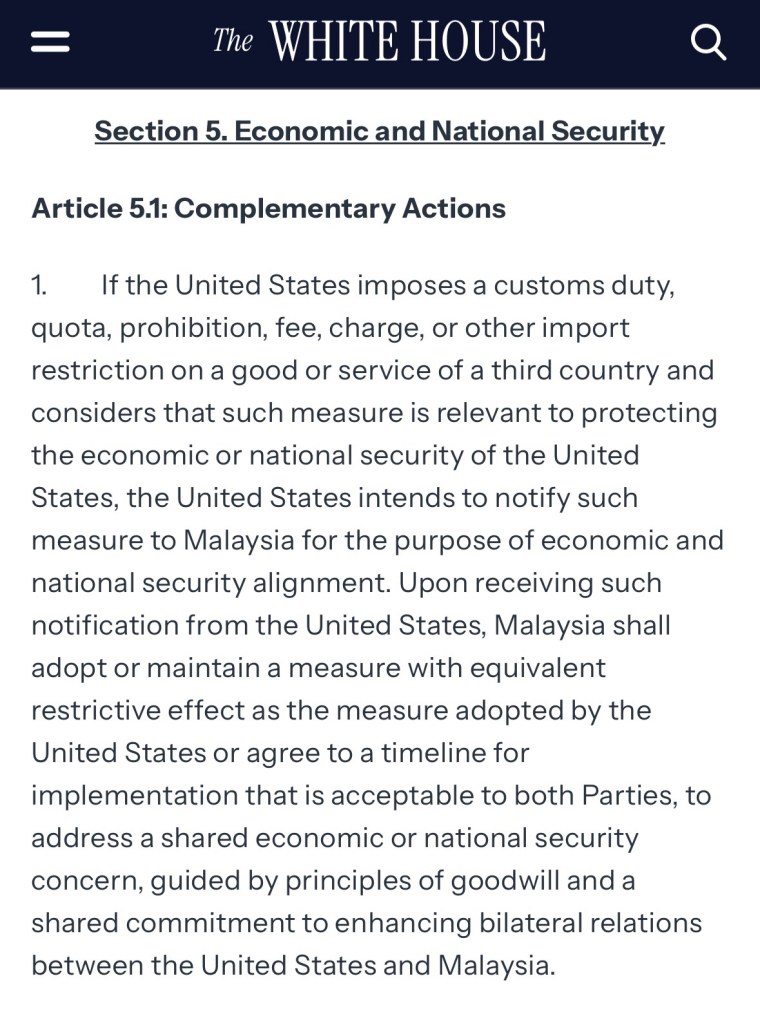
This is not cooperation. This is delegation. Article 5.1 binds Malaysia to adopt American measures against third countries in the name of U.S. economic or national security. Even among allies, such an obligation is unprecedented. It does not describe partnership. It describes subservience written into treaty text. -
What PETRONAS risked, Moët gained
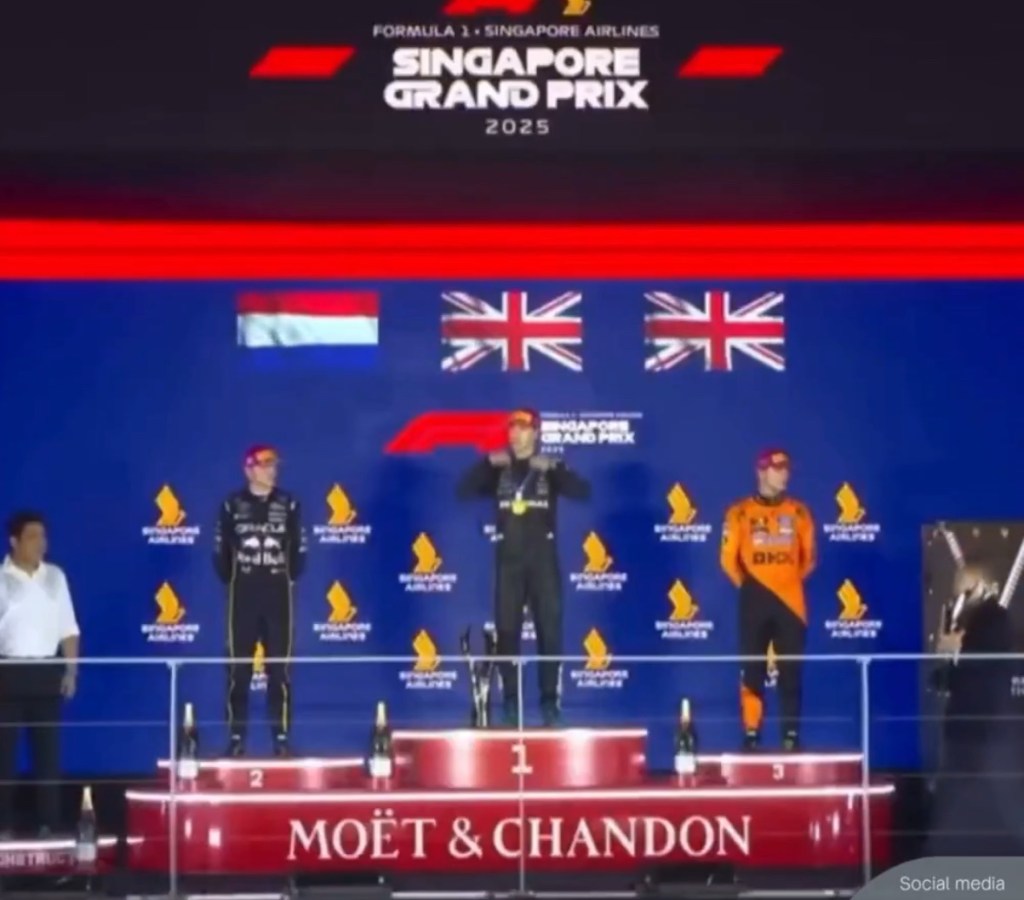
The global stage: the 2025 Formula 1 Singapore Grand Prix podium, choreographed to the second. Every brand, every gesture, every second of screen-time carries weight.The recent Singapore Grand Prix should have been remembered for the victory of Mercedes-AMG PETRONAS on the top step of the podium, with George Russell taking the chequered flag. It should also have been remembered as the moment McLaren secured the Constructors’ Championship. Instead, it has become remembered for a different image: the President and Group CEO of PETRONAS, magnum of Moët & Chandon in hand, caught on international broadcast spraying champagne as if he were a winning driver.
The incident has since drawn criticism and an apology, which was necessary. Yet the larger question remains. What was gained, and what was lost, when PETRONAS’ brand was projected, for two long minutes, through the imagery of champagne spray.
Formula 1 is not simply a sport. It is a global media product, choreographed to the second, in which every logo, every backdrop, and every gesture is designed to create value. When the PETRONAS CEO took centre stage with a magnum of Moët & Chandon, what PETRONAS risked, Moët gained. One brand saw its equity tied to the dignity of a national oil company; the other secured global exposure in precisely the celebratory context it has long paid handsomely to own.
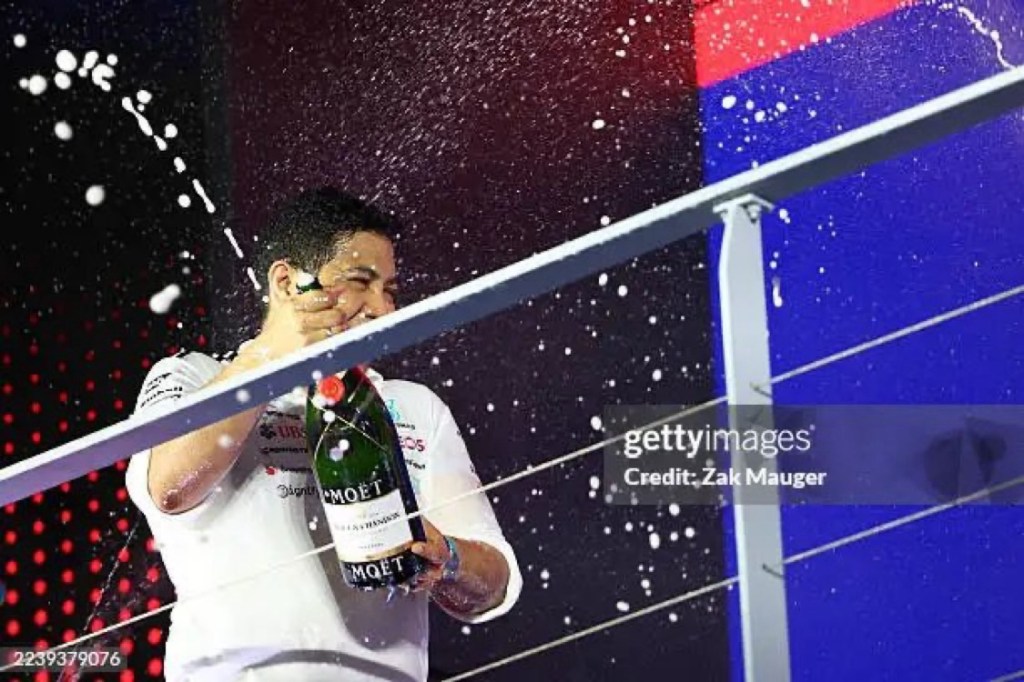
What PETRONAS risked, Moët gained. A national oil company’s dignity tied, in an instant, to a champagne label immemorialised by Getty Images.The issue is not morality, whether real or performative. It is optics, the question of how corporate leadership embodies the stature of the institution it represents. Picture this: Amin Nasser of Aramco, Darren Woods of ExxonMobil, Mike Wirth of Chevron, Wael Sawan of Shell, Patrick Pouyanné of TotalEnergies, Murray Auchincloss of BP, Magda Chambriard of Petrobras, Anders Opedal of Equinor, Claudio Descalzi of Eni. Can we imagine any of these global CEOs climbing an F1 podium, Moët magnum in hand, to spray champagne.
Leadership is not exercised only in boardrooms, strategy papers or multi-year investments. It is also measured in the split-second moments that matter disproportionately, when instinct collides with the weight of representation. On a stage as visible as Formula 1, the margin for error is almost non-existent. In those seconds, what is done or not done can reshape perception far beyond the moment itself.
PETRONAS has long aspired to stand among the majors. That stature is not measured by sponsorships or trophies alone, but by the restraint and gravitas of its leadership. Optics matter, because in the eyes of global investors, peers, and partners, they signal whether a company is led with the dignity befitting its scale.
Formula 1 delivers the rarest of stages, where every second has global reach. On that stage, the measure of ambition is not whether we are seen, but how we are seen.
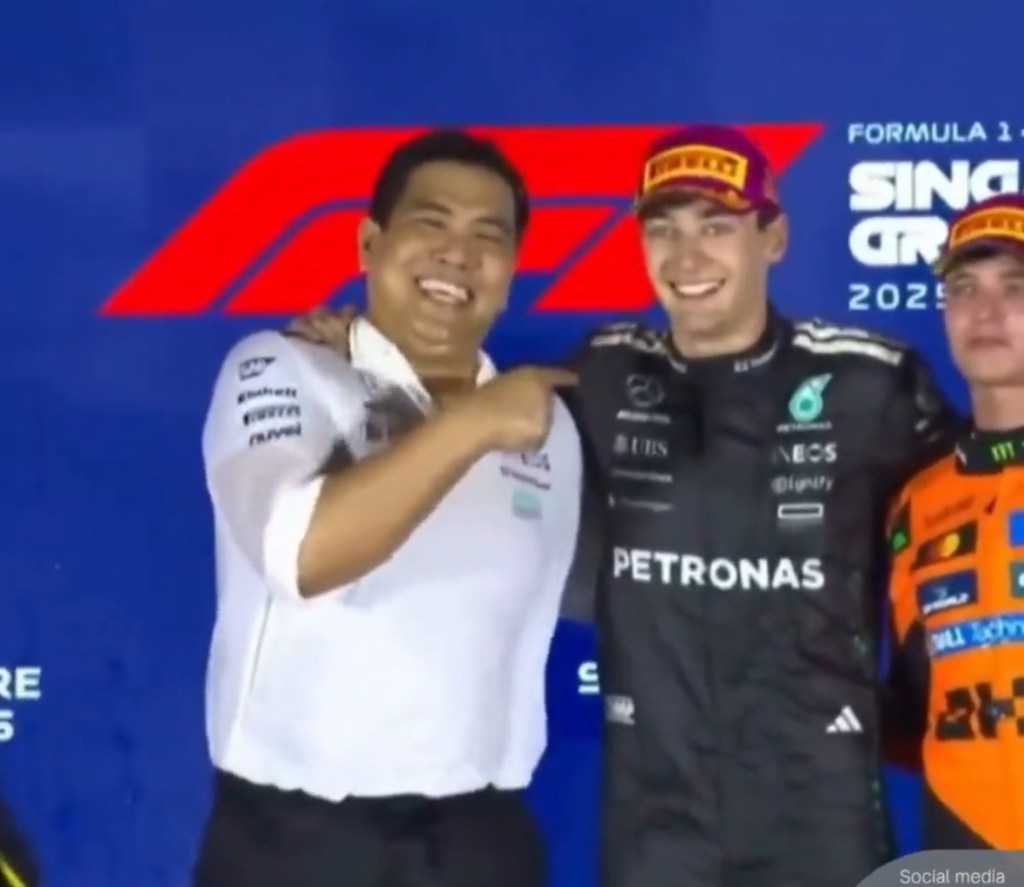
Moments of exuberance, but also moments of representation. Leadership is tested not only in boardrooms, but in the split-second images that travel worldwide.Malaysia deserves assurance that PETRONAS will continue to embody the decorum and dignity worthy of its hallowed name. For PETRONAS does not stand only as a sponsor of motorsport, but as the custodian of a national symbol and a global player whose reputation must command respect in every arena.
For what PETRONAS risked in Singapore, Moët gained, and that exchange, above all, must never be repeated.
📌 Footnotes
1. Singapore Airlines Singapore F1 Grand Prix 2025: The race was won by George Russell driving for Mercedes-AMG PETRONAS Formula One Team, with McLaren securing the Constructors’ Championship in the same weekend.
2. Podium protocol: Traditionally, the podium is reserved for the top three drivers and occasionally the representative of the winning Constructors’ team. On this occasion, Tengku Muhammad Taufik represented PETRONAS and Mercedes on the podium.
3. Moët & Chandon: Official champagne supplier to Formula 1 since 1966 (with brief interruptions). Every podium ceremony is choreographed to include its brand exposure.
4. Global oil majors: CEOs referenced – Aramco, ExxonMobil, Chevron, Shell, TotalEnergies, BP, Petrobras, Equinor, Eni – are the benchmark comparators for PETRONAS’ aspiration to global stature.
5. Getty Images circulation: The photo of Tengku Taufik spraying champagne has been syndicated by Getty Images, ensuring enduring visibility beyond the initial broadcast.
Editor’s Note: The footnotes are provided solely to situate the commentary in factual context. This essay does not question personal integrity, but reflects on institutional optics and the symbolism of leadership on a global stage. The images referenced are part of the public domain of Formula 1’s official broadcast and syndicated media.
-
The Ultimate Fall Guy
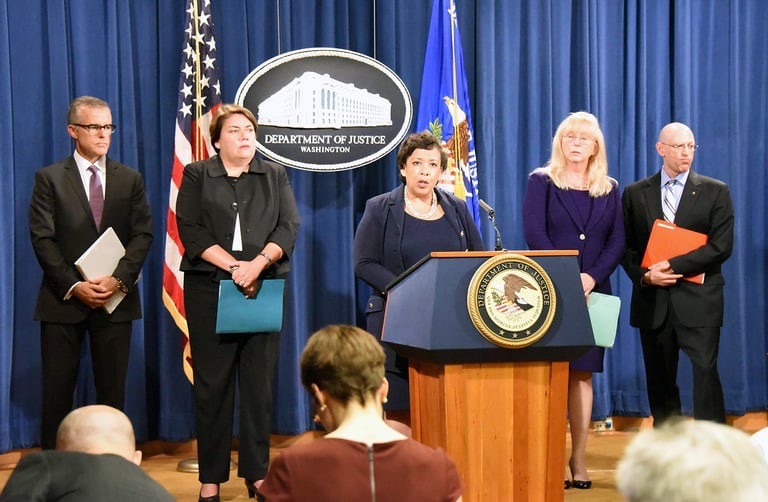
Washington politics, the 1MDB scandal, and the man who carried its weight
Every political system requires fall guys. They are the figures who absorb the punishment so that institutions may endure and leaders may survive. In Washington the fall guy is a familiar instrument of power, providing the spectacle of accountability without the cost of dismantling the system itself. The 1MDB affair, often narrated as a Malaysian scandal, was equally a Washington story. It intersected with three American presidencies, each consumed by its own partisan battles, and in each phase someone had to take the fall. The cast changed over time, ranging from financiers and lobbyists to celebrities and even an entire nation, but the narrative logic was constant. At the centre of it all stands Najib Razak, the one man who unlike the intermediaries and enablers scattered across the globe remains imprisoned, contested, and indelibly branded. He is the ultimate fall guy, the enduring symbol of a scandal far larger than himself.
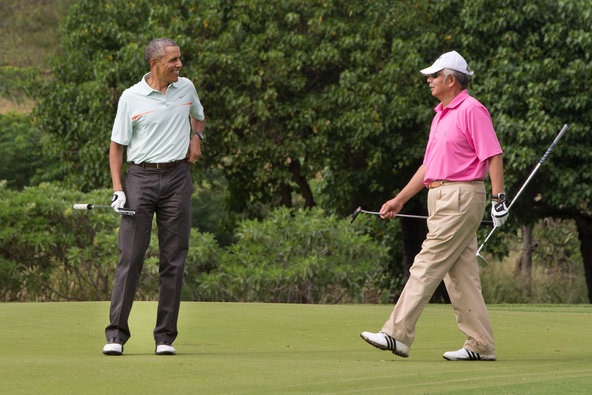
The scandal first arrived on the world stage in Washington in July 2016 when then Attorney General Loretta Lynch and senior Justice Department officials announced what they described as the largest kleptocracy case in history. The phrase was deliberate. It was theatre as much as law. For the Obama administration, besieged by questions of credibility after the Panama Papers and eager to claim leadership in the fight against global corruption, 1MDB was the perfect case. It had all the optics: billions siphoned from a sovereign fund, yachts and Beverly Hills mansions, Hollywood films and Leonardo DiCaprio, diamonds and Picassos. It was corruption already written for a movie script. And critically, Malaysia was a safe target. Large enough to dramatise, small enough to be expendable. Unlike Russia or China, it would not retaliate. Unlike Gulf sovereign funds, it was not a vital American ally. So Malaysia, and Najib Razak as its prime minister, became the showcase villains.
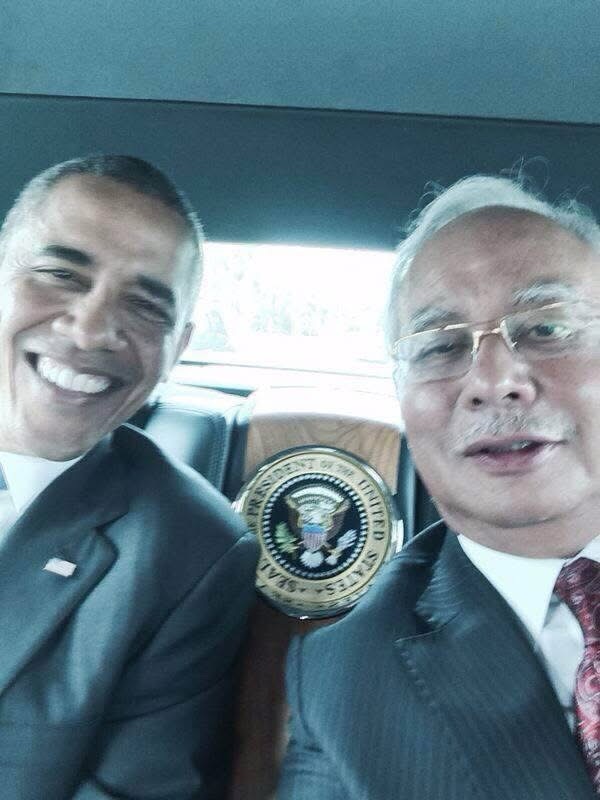
Meanwhile, the global enablers of 1MDB’s flows, the banks that moved the money, the Hollywood auction houses and galleries that sold the art, and the Gulf intermediaries who cut deals with the proceeds, all escaped the full glare. The Department of Justice got its global theatre, Malaysia bore the shame, and the world learned the name 1MDB. From the very beginning the narrative had already chosen its fall guy.
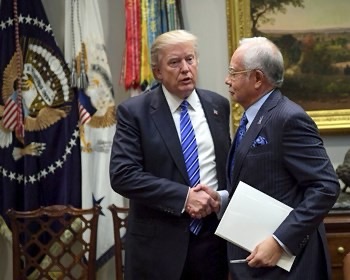
Under Trump the story did not fade. It re-entered Washington through its most porous channel, which was money. By 2017 Jho Low was desperate. His yacht had been seized, his assets frozen, and indictments loomed. So he did what the wealthy have always done in Washington, he hired lobbyists. The celebrity conduit was Pras Michel, the Fugees rapper. The political operator was Elliott Broidy, a Republican fundraiser and deputy finance chair of the RNC. The goals were audacious. Persuade the Department of Justice to abandon the 1MDB prosecutions and engineer the extradition of Chinese dissident Guo Wengui as a favour to Beijing. In return Broidy was promised tens of millions.
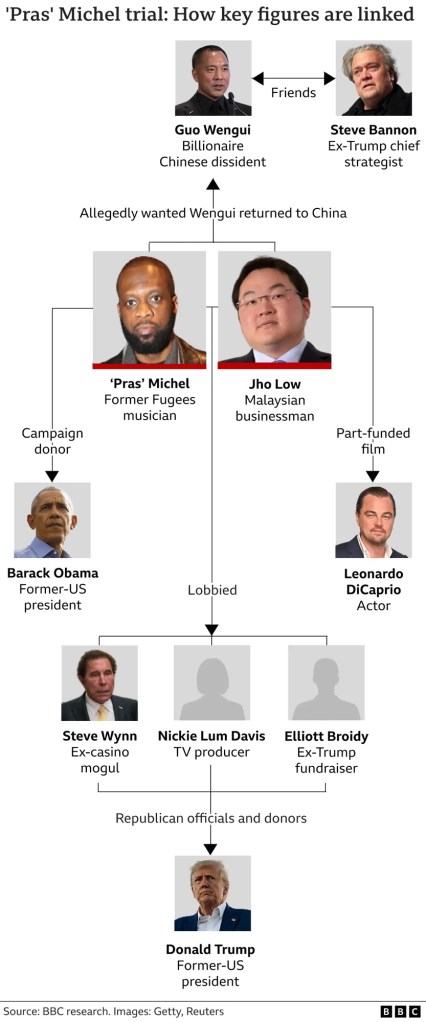
But the timing was fatal. Washington was already aflame with the Mueller investigation and accusations of Russian influence. The Justice Department, accused of bias from all sides, needed credibility. And credibility meant proving that foreign lobbying would not be tolerated even when Republicans were involved. So Broidy became expendable. Indicted in 2020, pleading guilty to conspiring to violate the Foreign Agents Registration Act, he was abandoned by his party and pardoned only on Trump’s last day. Pras Michel followed the same arc. Indicted in 2019 and convicted in 2023, he became the celebrity face of foreign influence gone wrong. Both were fall guys, useful to prosecutors, satisfying to the press, and ultimately forgettable.
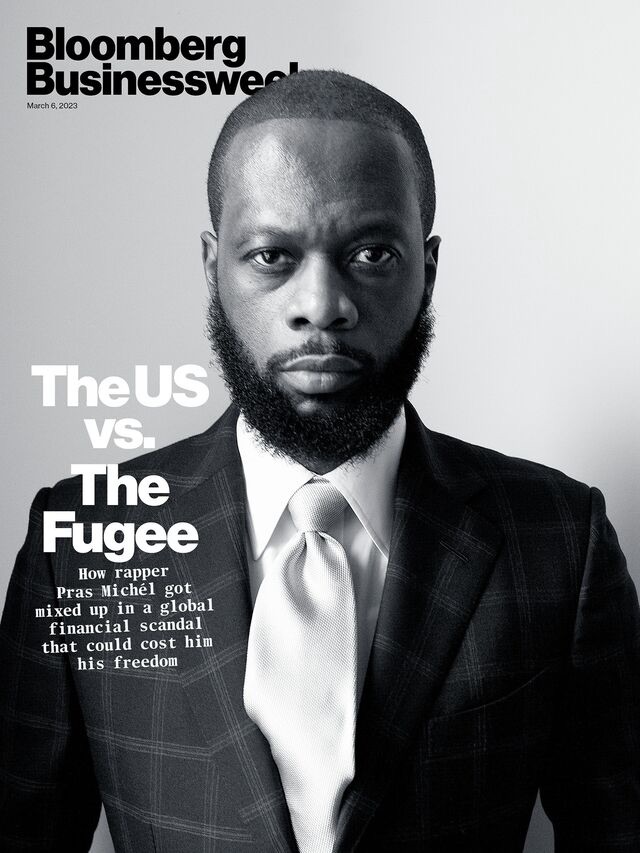
Meanwhile, the real architecture of the scandal, the banks that moved the money, the industries that absorbed it, the sovereign allies who profited from it, remained untouched.
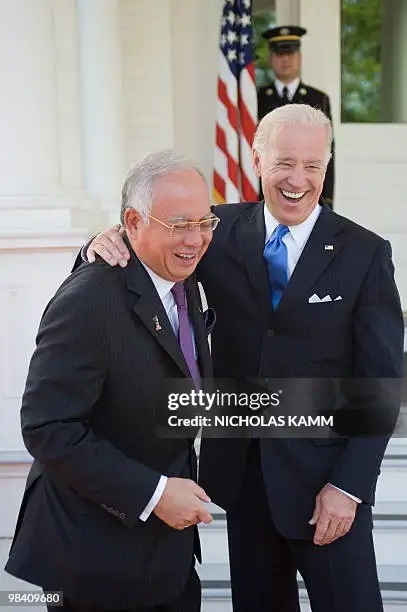
The transition from Trump to Biden changed the players but not the script. Biden’s Justice Department continued to prosecute intermediaries. Pras Michel’s trial reached its conclusion, Tom Barrack was indicted for lobbying on behalf of the UAE, and others were caught in the long tail of FARA enforcement. These cases served the same function as before. They were high-profile, safe, and foreign enough to dramatise institutional vigilance without destabilising the core system. They showed continuity, not reform. The deeper pipelines of money and influence, Wall Street, K Street, Gulf capitals, stayed intact. Fall guys remained indispensable to Washington’s narrative of accountability.
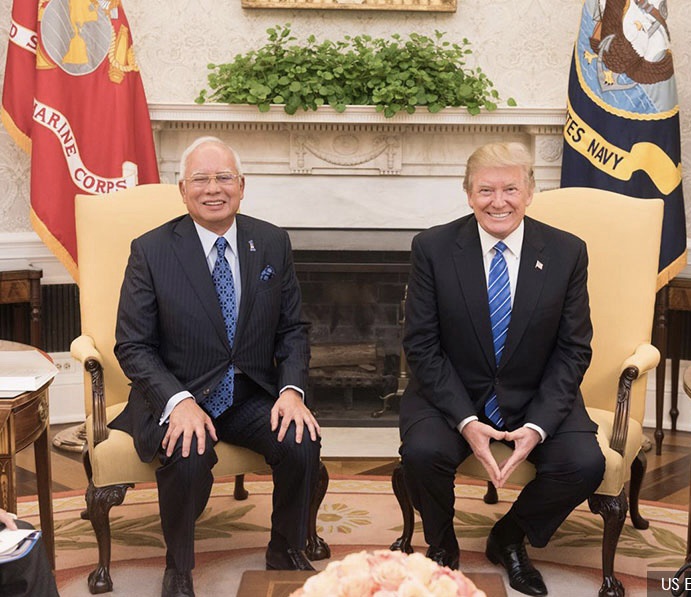
Across three presidencies the roll call of fall guys grew. Broidy, Michel, Barrack, and others passed across the stage. But none bore the weight that Najib Razak has borne. For the Department of Justice he was the name that validated the largest kleptocracy case in history. For Malaysia’s opposition he was the villain whose downfall enabled their improbable electoral victory in 2018. For global media he was the shorthand that made the story travel, a prime minister entangled in a billion-dollar heist. And unlike Jho Low who vanished into exile, Najib stayed. He faced trial, conviction, and imprisonment. He received a partial pardon, yet remains in prison. He continues to be contested in Malaysian politics, his fate still debated, his name permanently linked to the scandal. Najib became and remains the ultimate fall guy, not only for Malaysia’s transformation but for Washington’s partisan theatre and for a global financial system too fragile to put itself on trial.
The story of 1MDB is therefore not just about money, it is about narrative. Who controls it, who amplifies it, and who is drowned out by it. Under Obama Malaysia was the convenient fall guy for global anti-corruption theatre. Under Trump intermediaries like Broidy and Michel were sacrificed to sustain the credibility of the Department of Justice amid partisan fire. Under Biden the pattern endured, prosecutions continued, and the system could still claim vigilance. But through it all Najib Razak became everyone’s fall guy, the man whose downfall served Washington’s credibility, Malaysia’s political change, and the world’s appetite for a morality tale. That does not erase his own role in 1MDB, nor does it absolve him of having gained from what unfolded under his watch. What it does show is how a scandal that implicated financiers, bankers, lawyers, celebrities and governments across continents ultimately resolved itself into the fate of a single man.
Narratives matter more than facts. They decide who is punished, who is protected, and who is remembered. And in the case of 1MDB Najib Razak was not the architect, but he became the beneficiary most exposed, and in the end, the narrative that endured.
-
When the Storyteller Becomes the Story
“You tell the world where he is. You show the passport. You name the mansion. And yet, not one demand from Washington to bring him to justice.”
That was the question I posed not in anger, nor in defence, but as a call for moral consistency. It was neither partisan in origin nor rhetorical in tone. It asked only this: if one claims to expose injustice, must one not confront it in every direction?
The responses that followed did not disappoint. They also revealed more than I had expected.
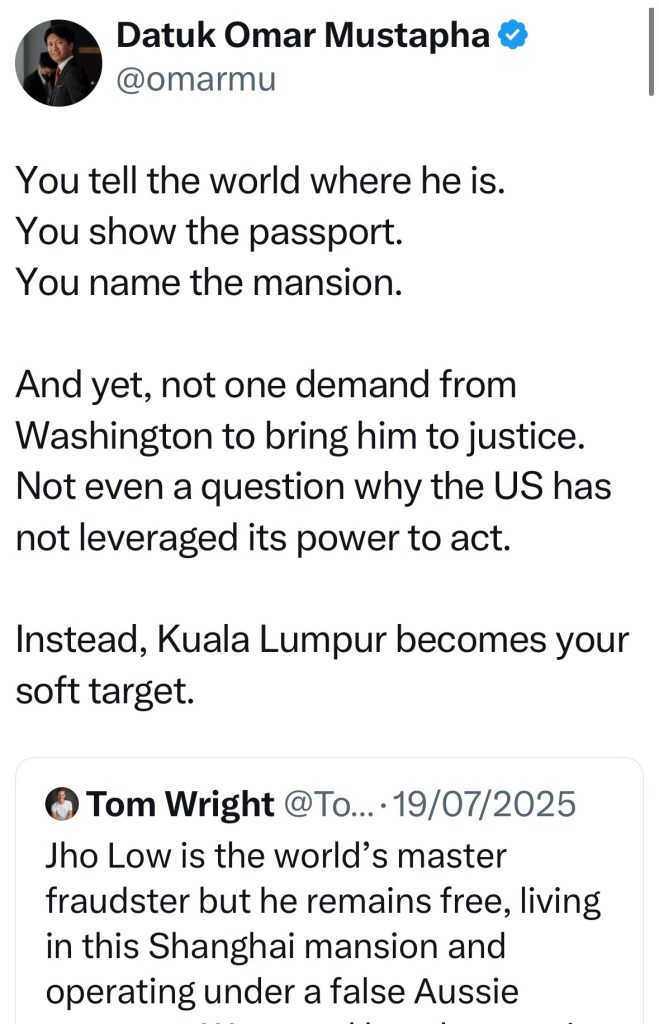
⸻
I. The Double Standard That Holds
Bradley Hope and Tom Wright were once praised for their early work uncovering the mechanics of the 1MDB scandal. Their reporting helped internationalise the narrative and frame Jho Low in the global imagination. The impact of their book Billion Dollar Whale was real and for that, they earned respect – and global attention.
But something fundamental has shifted in the years since. No longer reporters bound by institutional rigour, they now operate as brand custodians of a global content platform. Their posture remains investigative, but the substance has shifted. They have ceased to investigate power in all its forms and have begun to curate narratives in a way that is editorially convenient and commercially useful.
When they published a thread identifying what they claimed to be Jho Low’s false passport and mapped his villa in Shanghai, the implications were serious. The man at the centre of the world’s most audacious financial scandal is no longer hiding. He is living in plain sight. His location is not speculative. It is known. By them. By the Department of Justice. And most likely, by many others with the power to act.
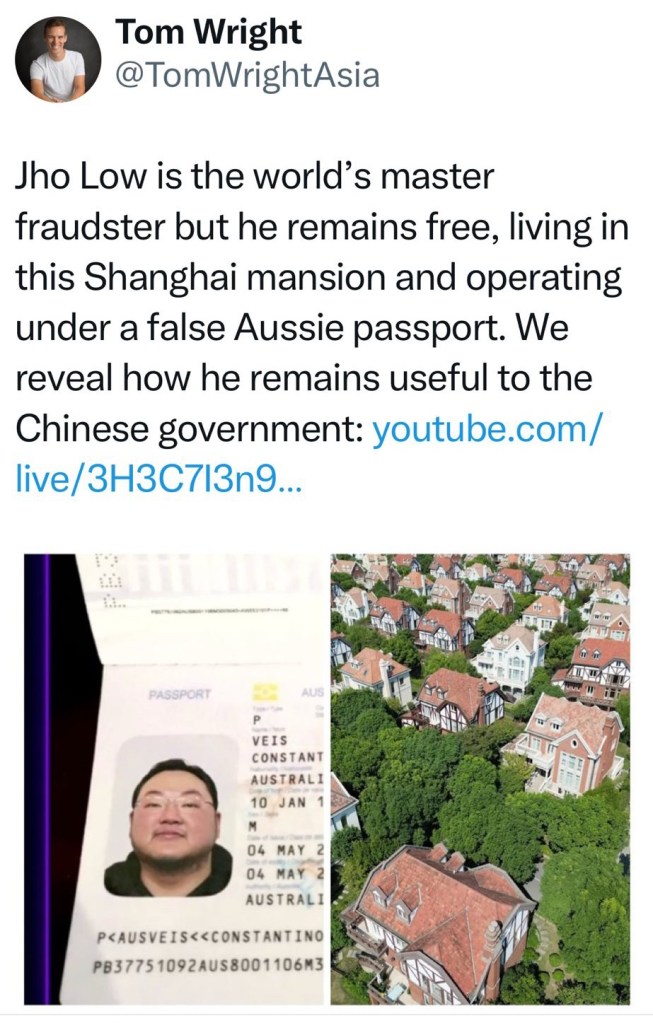
Tom Wright’s exposé of Jho Low’s alleged Shanghai location, complete with photo of a false passport and villa overhead.But they did not direct their questions at Washington. They did not ask why no diplomatic action had been taken. They did not ask why the same country that located Osama bin Laden and retrieved him from a fortified compound halfway around the world appears unable (or unwilling) to bring Jho Low to justice.
Instead, they turned their attention once more to Malaysia.
⸻
II. A Deflection Disguised as Precision
I engaged. Politely. Transparently. I asked whether any pressure had been applied by those in Washington who have jurisdiction over Jho Low, who indicted him under U.S. law, who recovered billions in stolen assets, and who benefitted from the extradition of a Malaysian citizen to stand trial in their courts.
Tom Wright replied, “He’s Malaysian.”
As if that settled the matter. As if that absolved the United States of responsibility. As if jurisdiction were a matter of birthplace, rather than binding law.

Wright’s reply to my public query on U.S. inaction: “He’s Malaysian.”
A three-word shrug.Before I published this post, I had asked a quieter question in a different context, prompted not by provocation but by something I could not ignore. Bradley Hope had shared a visually intricate map of the 1MDB scandal, intended to show the complex web of individuals and institutions involved. But two nodes were blacked out. They were not banks or jurisdictions. They were names. And they were names that, from what could be discerned, pointed not to Malaysian actors, but to figures associated with the Trump campaign.
I noted this publicly, not to accuse, but to observe. Hope responded with civility and restraint. Tom Wright, by contrast, dismissed the comment altogether. “This guy accusing us of something? Hard to understand.”
That reaction was instructive. The discomfort did not lie in what was said, but in what had been seen. The redactions were not accidental. They were deliberate choices. And those choices revealed that the story, at least in part, was no longer being told in full.
At that moment, it became clear to me that we were no longer dealing with journalism in its purest form. We were witnessing its transformation into something else: selective narrative, editorial control, and ultimately, performance.
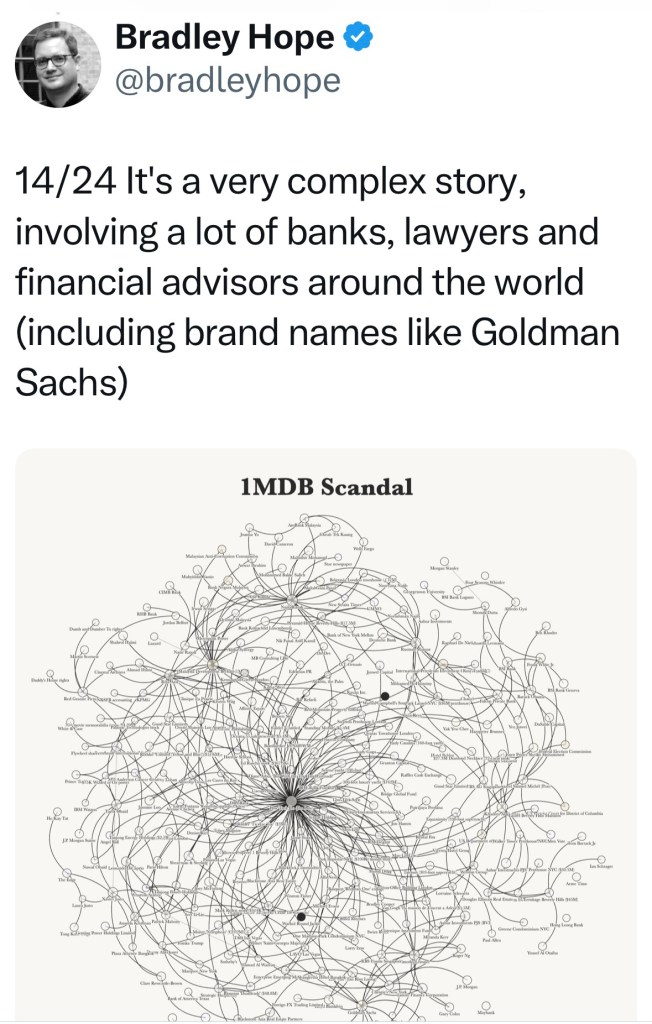
Bradley Hope’s own visual reconstruction of the 1MDB scandal. Amid the many connections mapped, two names are redacted—despite the public domain record of their involvement. The omissions are not editorial oversights. They are deliberate narrative choices.Roger Ng is also Malaysian. He was arrested, flown over ten thousand miles, and tried in Brooklyn. He was handed a ten-year sentence by a U.S. federal judge. His citizenship did not shield him. Nor should it have.
Malaysia prosecuted its former Prime Minister who was found guilty and is now imprisoned. Malaysia cooperated fully with the DOJ. Malaysia bore the political cost of reform and accountability. Malaysia has never denied its institutional failings.
But it is not Malaysia that knows where Jho Low is today. It is not Malaysia that holds the legal indictment under its own statutes. It is not Malaysia that possesses the geopolitical tools to act, and yet has chosen not to.
⸻
III. The Descent from Journalism to Franchise
And then came the real reveal.
On the same thread that identified Jho Low’s alleged location, just beneath the investigative claims, appeared a link.
“Jho Low World Tour. 2009–2025.” Printed on a black T-shirt. Available for purchase. Promoted on the same account. Branded under the same media studio.
This is not journalism.

A novelty T-shirt marketed by Brazen.fm bearing Jho Low’s image and the label “World Tour 2009–2025.” Promoted on the same platform used to expose his whereabouts, the product blurs the line between justice and merchandising.This is merchandise created in the likeness of a man they claim to hold responsible for the worst act of financial pillage in Malaysia’s history. It is difficult to reconcile that moral posture with the decision to commercialise it on a novelty shirt.
No serious journalist at The Wall Street Journal, where both men once worked, would imagine monetising their reporting in this way. No Pulitzer-winning newsroom would permit it. And no editor of integrity would defend it.
And yet, here we are.
When those who once chronicled justice begin to sell the image of the fugitive they helped immortalise, it no longer matters what they say about others. Their actions have become the story.
⸻
IV. What This Is Actually About
Let me be clear. This is not a defence of Najib Razak. It is not a partisan diversion. It is not a plea for absolution.
I testified under oath. I submitted myself to legal scrutiny. I do not need to re-litigate that here.
But I will not remain silent when others who once stood for accountability begin to insulate themselves from it. If you invoke the language of justice, then you must be prepared to answer to its demands. If you trade on the authority of journalism, then you must accept the responsibilities that come with it. You cannot hold others to account while evading scrutiny yourself.
Nor can you condemn a small nation’s failings while averting your gaze from the silence of superpowers.
Malaysia has many flaws. We have paid a price. We continue to pay it. But we have never protected Jho Low.
The country that knows where he is and chooses not to act is not Malaysia.
⸻
V. Final Observations
This is no longer a story about a fugitive alone. It is a story about those who now curate his narrative, profit from his notoriety, and offer judgment from a safe and selective distance.
It is also a story about what journalism becomes when it crosses the line into performance. When truth is no longer pursued for its own sake, but tailored for spectacle and tailored to sell. When T-shirts replace testimony.
If Tom Wright and Bradley Hope wish to become public commentators, then they must accept public scrutiny. If they choose to market their reporting as a product, they must also accept the consequences of commodifying justice.
I would not have written this if they were mere provocateurs. But they speak from the prestige of institutions they once served with distinction. They should carry that weight with honour.
Because if they will not bear that responsibility, others must.
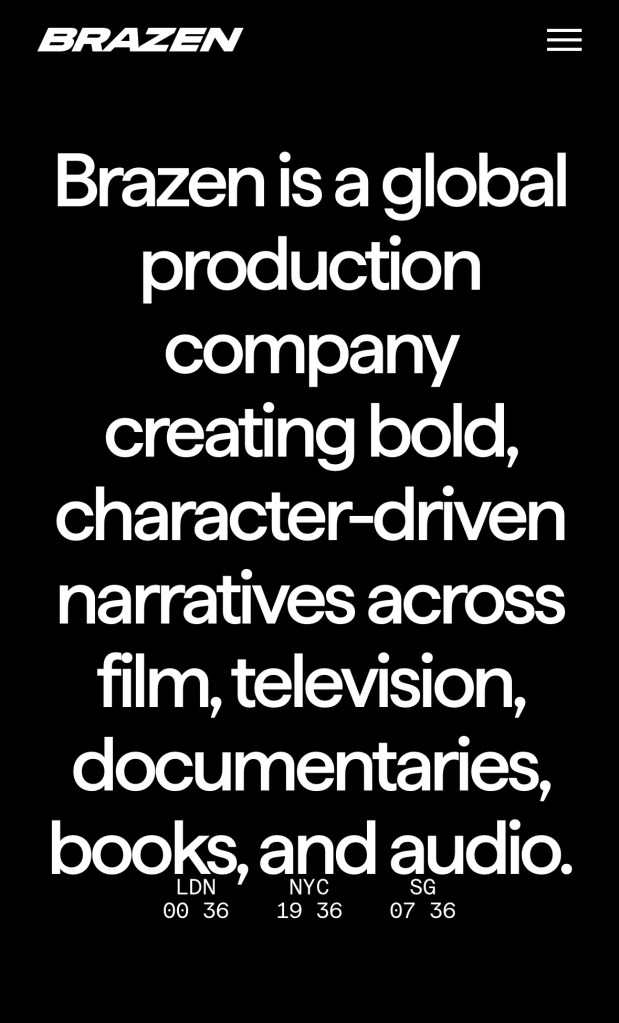
Postscript:
Once, they chased the story.
Now, they sell the narrative.
From watchdogs to showrunners, the transformation is complete. -
The Pied Piper Of Putrajaya
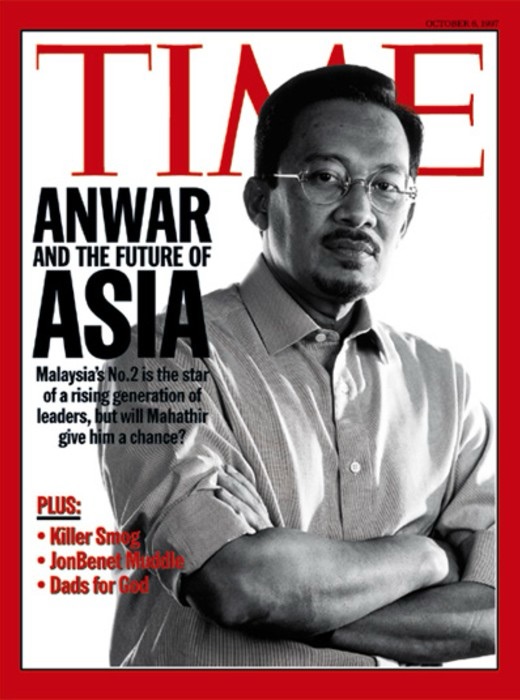
Time Magazine cover, October 6, 1997: Anwar Ibrahim, then Malaysia’s Deputy Prime Minister, featured with the headline “Anwar and the Future of Asia.”Malaysia today faces an unusual contradiction.
On the surface, we are told the economy is recovering. Investment is flowing. Subsidies are being rationalised. The GST debate is over. A medium-term revenue strategy is in motion. And inflation, we are assured, remains contained.
But underneath this well-rehearsed narrative, a deeper anxiety simmers. Business leaders are cautious. Civil servants are frustrated. Investors are confused. The rakyat, particularly the urban middle and lower-income households, feel poorer despite all official assurances to the contrary.
And at the heart of that disconnect lies a fundamental question:
Who exactly is responsible for the economy, and where are they taking it?
Global Headwinds but Local Agency Matters More
Yes, global conditions are tough.
Geopolitical fragmentation, prolonged high interest rates, supply chain realignments, and new waves of industrial policy from Washington to Brussels have all reshaped the global trade order. Malaysia is not immune. Nor is any small, open economy.
But let us not pretend that our current economic condition is purely the result of global tides.
Growth is now consistently trailing pre-pandemic trends. Real wages have barely moved. Household debt remains among the highest in Asia. Our fiscal position is tightening not because of a sudden crisis, but due to long-standing policy deferrals and structural complacency.
This is not external fate. This is internal design.
The Data Does Not Lie, But It Does Accuse
Based on official data released by Bank Negara Malaysia and the Department of Statistics, Malaysia’s federal government debt at end-2024 stood at RM 1.1725 trillion. The country’s GDP for the same year was RM 1.6503 trillion.
This puts our debt-to-GDP ratio at 71.05 percent, well above the statutory ceiling of 65 percent as mandated by the Fiscal Responsibility Act 2023.
This is not a speculative concern. It is a factual, legal breach.
Section 4 of the Act sets the ceiling. Section 10 mandates disclosure to Parliament and submission of a fiscal recovery plan if breached. Neither has taken place.
Beyond debt figures, other structural signals are flashing amber. Real wage growth remains tepid. Median household income has stagnated. Budget deficits have exceeded 5 percent of GDP for several consecutive years. FDI inflows remain uneven. Malaysia’s export competitiveness is under renewed threat as global supply chains recalibrate and tariffs loom on the horizon.
These are not isolated metrics. They represent a structural erosion of economic resilience.
A Government of Two Minds
Within this administration, there is a growing tension between two conflicting economic impulses.
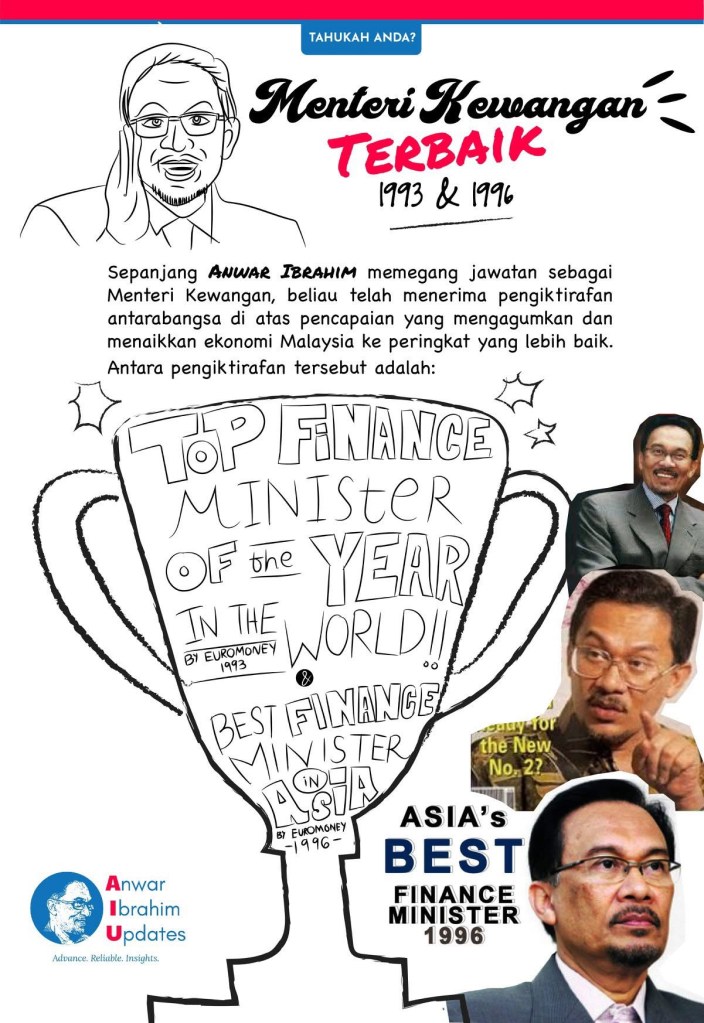
Infographic celebrating Anwar Ibrahim’s tenure as Malaysia’s Finance Minister, highlighting accolades received in 1993 and 1996 including “Top Finance Minister of the Year” by Euromoney and “Asia’s Best Finance Minister” by Asiamoney.The first is rooted in Prime Minister Anwar Ibrahim’s legacy as a 1990s reformer. It privileges fiscal discipline, macroeconomic credibility, and technocratic rule-based governance. This impulse recalls the Anwar who, during the Asian Financial Crisis, embraced a form of fiscal restraint that mirrored IMF conditionality, albeit without IMF involvement.
The second impulse is populist and reactive. It prioritises visible relief measures over long-term structural shifts. It maintains fuel subsidies, expands social spending, and introduces selective tax exemptions with minimal targeting. These measures are often politically expedient but economically incoherent.
The result is a confused hybrid. Diesel subsidies are cut, but apples and oranges are exempted from tax. SST is expanded to professional services, yet revenue measures are not accompanied by a broader tax reform agenda.
What emerges is neither technocratic clarity nor populist certainty. Instead, we see the contours of drift.
At some point, governments must match institutional authority with political accountability.
This is not a legacy crisis inherited from past administrations. The Fiscal Responsibility Act was tabled, debated, and passed by the current government. The appointments to key ministries were made by the current Prime Minister. The budget, subsidies, and fiscal projections were approved under his direct authority.
Power has been centralised. So must responsibility.
A government cannot consolidate executive control and then plead operational constraints when results fall short.
The PKR State: Who Holds the Commanding Heights
Using the British concept of the commanding heights, a term that refers to strategic sectors that shape national economic direction, the picture in Malaysia is unambiguous.
Parti Keadilan Rakyat (PKR) now holds or controls the three most powerful economic levers in government.
First, the Ministry of Finance, held by the Prime Minister himself.
Second, the Ministry of Economy, entrusted to a technocrat personally appointed by the Prime Minister.
Third, the Ministry of Investment, Trade and Industry, led by a trusted PKR affiliate and Anwar ally.
These three ministries determine where capital flows, which industries rise, who gets taxed and who gets exempted, how government-linked companies are governed, and where Malaysia positions itself within the global economy.
This is not just policy centralised. This is power held tightly.
More Than Ministries: Who Controls the Crown Jewels
In addition to these economic super-ministries, three of the country’s most powerful economic institutions are also directly answerable to Anwar.
PETRONAS, the national oil company and single largest contributor to government revenue.
Khazanah Nasional, the country’s sovereign wealth fund.
Permodalan Nasional Berhad, the institutional guardian of Bumiputera capital ownership.
Together, these six nodes comprising three ministries and three national institutions define the architecture of Malaysia’s modern economy. Never before has so much institutional power over money, capital, and economic direction been concentrated under the personalised authority of a single Prime Minister.
And so the question must be asked, not as a political jab but as a matter of governance and strategic capacity:
Can one man, even a long in the tooth veteran like Anwar, truly manage it all – even via his chosen surrogates?
The Debt Breach: A Crisis of Credibility
Let us now turn to the fiscal fundamentals.
As outlined earlier, Malaysia’s federal debt has breached the statutory ceiling by over 6 percentage points. This is not an academic violation. It is a statutory breach of a law passed just 18 months ago by this very government.
Section 10 of the Act requires the Finance Minister to notify Parliament and present a recovery plan. As of now, no such report has been filed. No such plan has been disclosed. No such transparency has been attempted.
The Risk of Institutional Paralysis
We now face a dangerous institutional moment.
The government writes a law. The government breaks that law. The government delays admitting it. And the institutions around it, including the civil service, Parliament, and financial regulators, go silent.
This is not a crisis of fiscal numbers. It is a crisis of fiscal accountability.
If laws passed by Parliament are quietly breached and then retroactively justified, the entire framework of public governance is weakened.
Malaysia deserves better than compliance theatre. Parliament reconvenes in a week. Who will hold Putrajaya to account?
All Roads Lead to Anwar but Where Is He
This brings us to the most difficult but essential point.
If Anwar Ibrahim holds the Finance portfolio, leads the political party that dominates the economic ministries, and appoints the heads of PETRONAS, Khazanah, and PNB, then the economic buck stops with him.
And yet, he is nowhere near the helm.
His attention is increasingly diverted by a string of foreign trips and summits, personal judicial entanglements including a landmark immunity hearing scheduled for 21 July, and endless rounds of party-political signalling, while PKR itself struggles to define its governing identity.
He has time for media interviews and crowd rallies, but not for a formal statement to Parliament on a breach of fiscal law.
He has time to exempt fruit from SST, but not to account for why fiscal discipline collapsed under his watch.
Conclusion: The Leadership Void
Malaysia does not lack economic talent.
Malaysia does not lack institutions.
Malaysia does not even lack plans.
What it lacks is clear economic leadership.
Until that changes, until the Prime Minister chooses to lead the economy rather than outsource it, distract from it, or delay difficult choices, the risk is not simply fiscal. It is systemic.
And if he will not lead it, someone else eventually will.
But not before things get much worse.
Footnote:
For those less familiar with fiscal policy, here is why the debt to GDP breach matters — and why it is not just academic:
📉 1. Borrowing headroom is now constrained
With civil service salaries and pensions absorbing most of the operating budget, any fiscal squeeze lands hardest on development spending. This means roads, railways, schools and digital infrastructure are often the first to be delayed or cancelled. These are the projects that stall.
⏳ 2. Delays in payments to suppliers
When liquidity tightens, ministries begin to defer payments — whether for IT systems, medical equipment or engineering works. Multi month arrears to private sector vendors disrupt cash flow and echo through the entire supply chain.
📆 3. Greater use of deferred procurement structures
To avoid recording large debts upfront, the government turns to alternative arrangements such as build lease transfer (BLT) and public private partnerships (PPP) schemes. These stretch payments over 10 to 30 years, deferring the financial burden but constraining future budgets.
💸 4. Higher taxes and stricter enforcement are likely
To close the gap, the government will turn to revenue measures. Expect broader service tax coverage or new taxes such as carbon pricing or capital gains. The reintroduction of the GST is no longer unthinkable. Enforcement will also tighten — with more audits and more aggressive collections by the tax authorities and Customs.
🔍 5. More tax audits and penalties, even for GLCs.
The revenue crunch has already triggered back assessments across corporate Malaysia. Tenaga Nasional and PETRONAS were among the first. No company is immune. Enforcement is now part of fiscal strategy.
📊 Bottom line
A breach of the Fiscal Responsibility Act is not a legal footnote. It is a structural constraint that reshapes policy, reallocates risk, and sends signals far beyond the numbers. The real economy will feel the consequences.
-
Turning 100 Should Transcend Politics
Tun Dr Mahathir Mohamad turns 100 today.

In most nations, this would be cause for national reflection. Not because of unanimous admiration, but because of historical magnitude. A centenary invites us to pause, to reconcile, and to ask not just what he was, but what we have become.
Instead, we have seen something else: muted institutional response, cautious political triangulation, and silence from state-linked bodies that ought to be record-keepers of national memory, not just instruments of political convenience.
A Life Larger Than Politics
Tun Dr Mahathir served as Malaysia’s Prime Minister not once, but twice. First for 22 years. Then again for 22 months.

He oversaw the rise of our industrial economy, created a dominant Malay capitalist class, opened the door to global markets, and left behind infrastructure – both physical and institutional – that continues to define the country.
He was, and remains, a deeply controversial figure. His legacy invites debate: from the centralisation of power to the weakening of judicial independence, the unresolved wounds of Ops Lalang, and most recently, his combative role post-retirement. But these debates are precisely why he cannot be ignored. He is embedded in our political DNA.
When Churchill Turned 100
When Winston Churchill turned 100 in 1974, Britain did not hesitate.
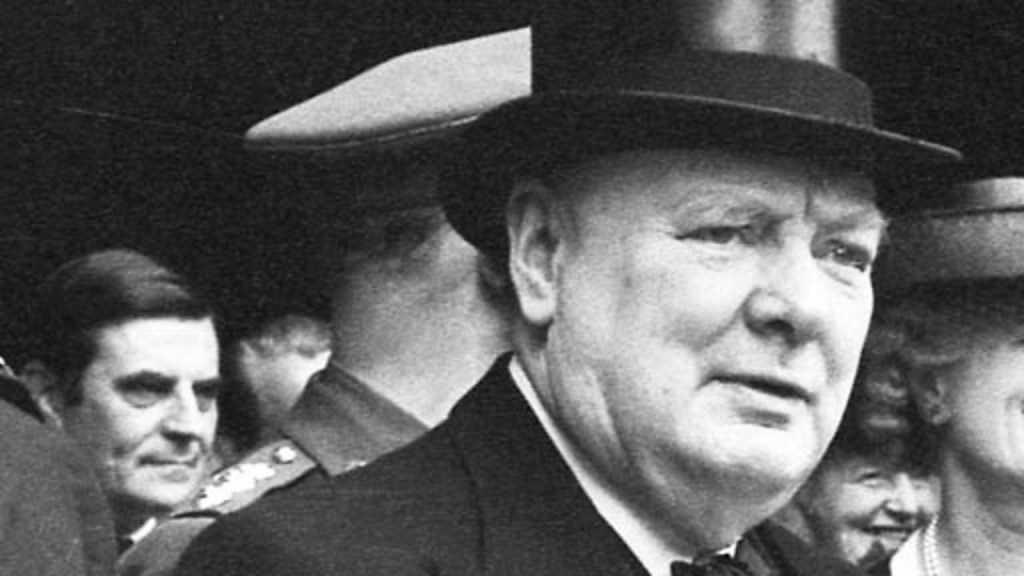
The BBC aired documentaries, replayed his speeches, and launched public retrospectives. Editorials debated his legacy. Archives were opened, not sealed.
This was not under a Conservative government – Churchill’s own party – but under Prime Minister Harold Wilson, leader of the Labour Party and Churchill’s lifelong political rival.
Wilson’s government had also presided over Churchill’s state funeral in 1965, attended by monarchs and presidents. And yet, in both death and commemoration, Britain understood this:
That marking a centenary is not about agreement.
It is about national memory.
It is about respecting history and rising above the politics of the day.

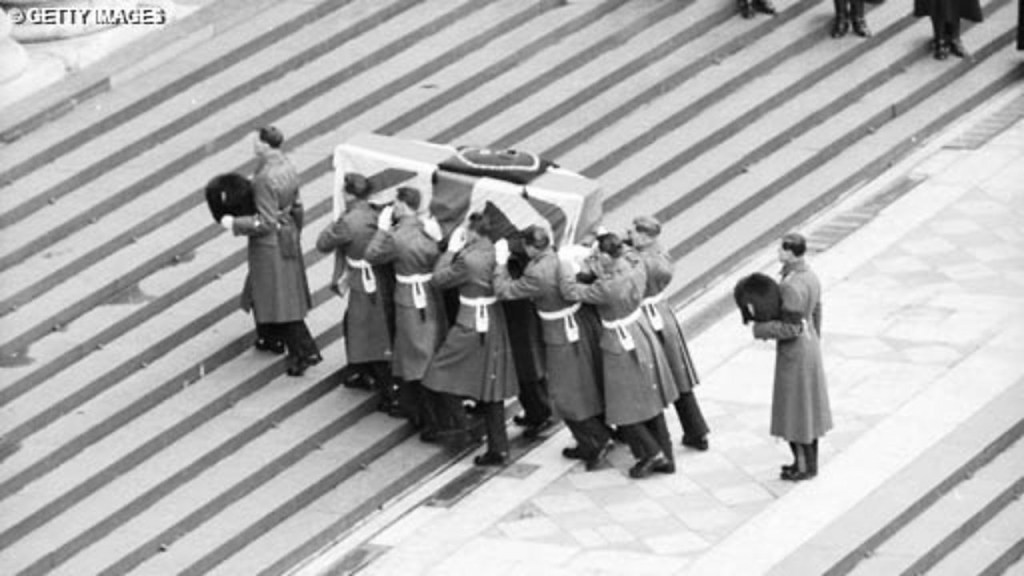
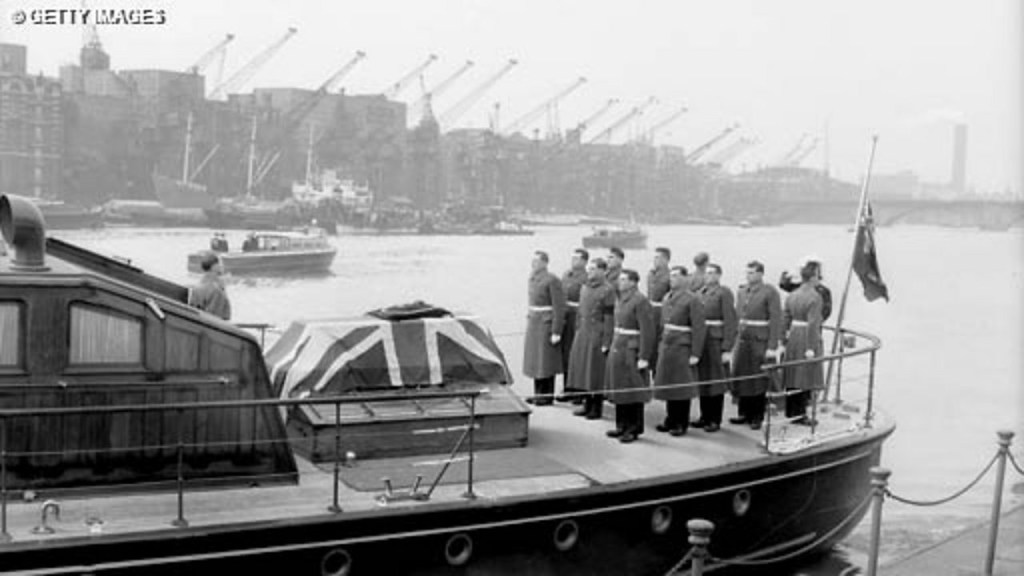
The Office Must Outlive the Man
Honouring a centenary is not a political endorsement. It is an act of democratic maturity.
It signals that we are capable of separating public memory from partisan allegiance. That we honour the role, not just the man. That we can acknowledge our past leaders even when we disagree with them.
To let Mahathir’s 100th pass with minimal institutional remark is to abdicate our responsibility as stewards of history. It denies young Malaysians the opportunity to understand the arc of national leadership in all its complexity and consequence.
The Cost of Silence
This silence is not neutral. It tells us who we are: still a country where history is written only by the present victor. Still a country where political discomfort overrides institutional memory. Still a country where turning 100 does not insulate a man from the anxieties of the moment.
We cannot allow our public memory to be this fragile.
When a man who helped build the very scaffolding of the modern Malaysian state turns 100, our duty is not to erase his controversies. It is to mark the moment with full clarity: his role, his rise, his rupture, and his relentless imprint.
Final Reflections
You don’t have to agree with Mahathir. I often haven’t. But you cannot erase him.

And a country that fails to mark his centenary with the seriousness it deserves is not punishing the man. It is diminishing its own sense of history.
Turning 100 should have been our breakthrough. A chance to rise above partisan instinct and model something nobler.
That we didn’t says more about us than it does about him.
It is not too late to correct course.
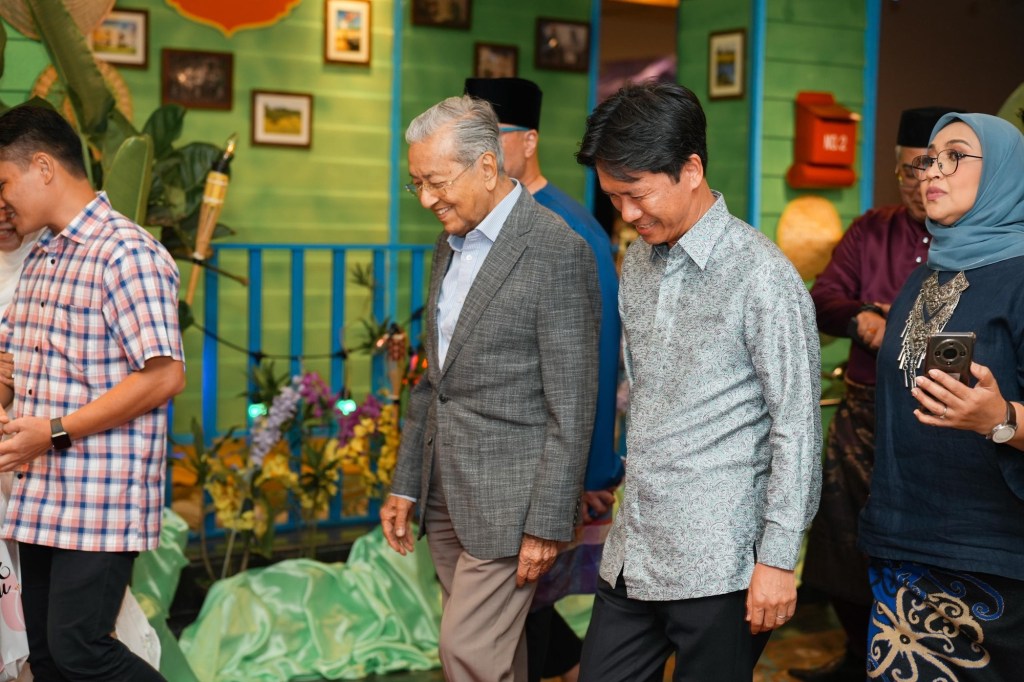
-
Subscribe
Subscribed
Already have a WordPress.com account? Log in now.